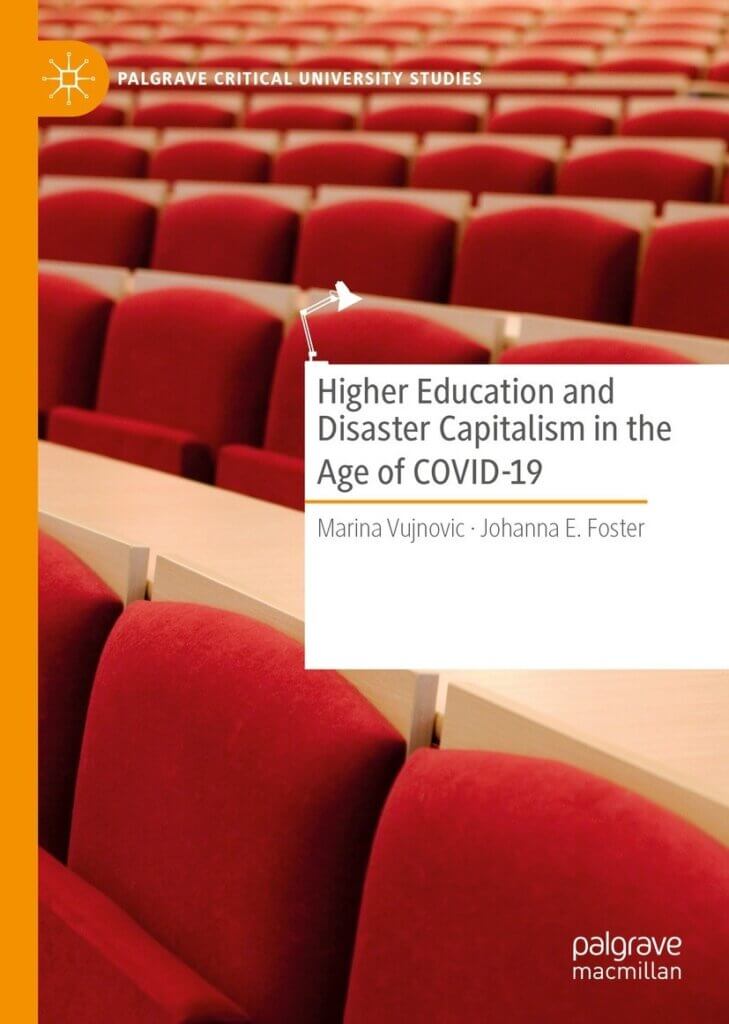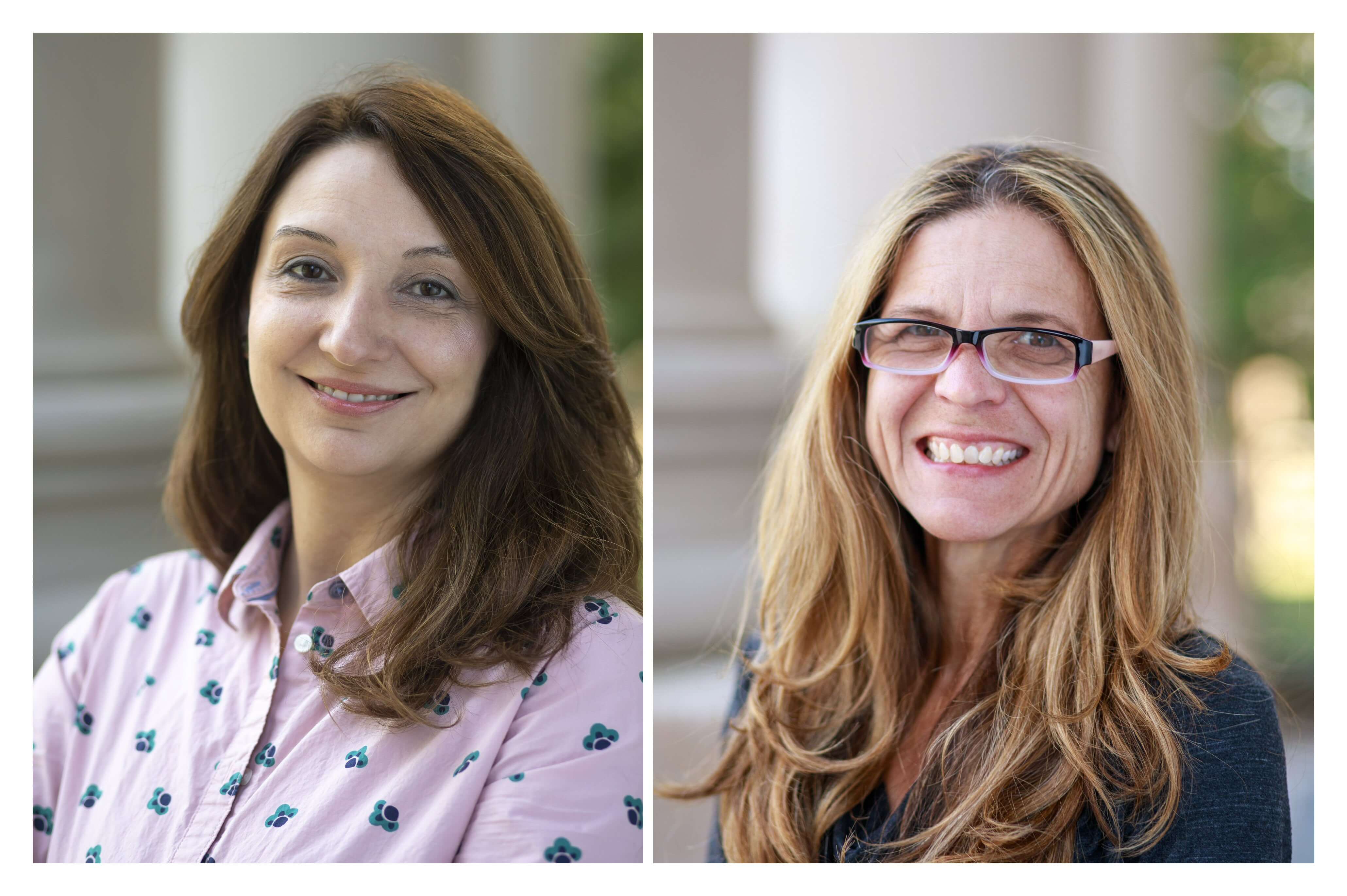
Marina Vujnovic, Ph.D., professor of journalism in the Department of Communication, and Johanna Foster, Ph.D., associate professor of sociology and Helen McMurray Bennett Endowed Chair in Social Ethics, are co-authors of a new book, “Higher Education and Disaster Capitalism in the Age of COVID-19,” published by Palgrave Macmillan on Nov. 10.
In their book, Vujnovic and Foster examine higher education in the context of “disaster capitalism,” a crisis that they assert “deeply impacts what and how students in the U.S. learn, who gets to learn, and the very mission of the academy.”
Stephanie Hall, Ph.D., a senior fellow at The Century Foundation, notes, “Their work provides a theoretical and conceptual grounding for understanding privatization as a large-scale phenomenon while situating the shifts in practice on the ground in context so that faculty, administrators, and advocates can understand from a bird’s eye view what role they play.”
Originally coined by Naomi Klein in “The Shock Doctrine: The Rise of Disaster Capitalism” (2007), “disaster capitalism” provides a lens for Vujnovic and Foster to examine post-pandemic higher education, arguing that a crisis in higher education exists within a larger context of advanced global capitalism, “fueled by variable and historically situated racial structures and hetero-patriarchies that particularly sacrifice students without race, class or gender privilege.”
Vujnovic and Foster further explore the “academic labor cost and control strategies” that many colleges and universities deployed during the COVID-19 pandemic, citing institutions that used fiscal emergencies to justify labor and program reductions. The authors also dive deep into the workings of “pandemic task forces” that were established to combat COVID-19’s effects on higher education, and how these groups often placed authority in the hands of “campus executives in student affairs and athletics, as opposed to faculty-supported leaders in academic affairs.”
The book details several examples of the relationship between the COVID-19 pandemic and resulting decision-making across higher education, including in return-to-campus policies, adoption of virtual learning, and in tuition increases. Vujnovic and Foster dissect alternative motivations behind these decisions and explore who may have profited from them.
In the final chapter, the authors conclude that while “higher education is not in ruins,” there are steps to be taken that can help us achieve “a different kind of pandemic opportunity” with not only “new colleges and universities for the people, but a new and fair economy for all.”
Elizabeth Tandy Shermer, Ph.D., associate professor of history at Loyola University Chicago, describes the book as “a must-read for anyone wondering what went wrong on campuses across the country. Their personal perspective and scholarly research deftly shows that the academy can never go back to their pre-pandemic ‘normal.’”
Foster is the president of the faculty association of Monmouth University, a collective bargaining chapter of the AAUP. Vujnovic is the former two-term chair of the faculty council and served on the council’s executive board for nearly a decade.

